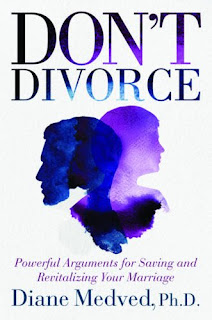Millennials came of age at a time when the job market was weak and their student-loan debt was high.
Such a dreary combination did not bode well for a rosy financial future.
Such a dreary combination did not bode well for a rosy financial future.
But could it be, when all is said and done, that millennials will prove to be just as financially savvy as their baby boomer parents?
“Many millennials definitely have traits and experiences that could serve them well when it comes to planning their finances,” says Dennis Notchick, an Investment Advisor and Certified Financial Planner with Safeguard Investment Advisory Group (www.safeguardinvestment.com).
“Just to give you one example, many millennials are good about creating budgets. That’s a good habit to have because keeping track of your monthly expenses helps you do a better job of planning and saving.”
Millennials have become the largest segment of the adult population, and a Deloitte study reports they are expected to grow their wealth significantly in the next several years, at least in part because they are heading into their prime-earning years. (The oldest millennials are in their mid-30s.)
The fact they grew up in a time of fast-developing technology and are quick to adapt to the changes also gives them an advantage, Notchick says. In the financial-investing world, new technology now provides for an instant snapshot of an investment or an entire estate on an app on their phone, and that’s a domain they are comfortable working within.
Based on his experience, Notchick says other ways many millennials may fare well in the world of finance include:
• Millennials are proactive when they need advice. Millennials brim with confidence when it comes to money, with 84 percent saying they are confident about their ability to handle their finances, according to a Bank of America/USA Today survey.
But as confident as they are, they realize there are some things they just don’t know or simply can’t learn through a Google search, Notchick says. Millennials also are willing to listen to their boomer parents when it comes to financial advice.
One study showed that 65 percent of millennials believe their parents provided a good example of how to have a successful financial future. They also realize that there is a cost to doing nothing and also a potential risk.
• Millennials change with the times. Millennials adapt easily to change and new ideas, whereas a majority of boomers are slower to adapt as the world, and the markets, evolve.
“What worked in the past may not work in the future, and the markets we are in right now are not the markets of the 80s and 90s,” Notchick says. On the other hand, boomers do have the advantage of experience, right or wrong, and one thing their experience has taught them is that it’s always important to keep learning.
• Millennials take a different route with retirement savings. While boomers were encouraged to contribute to a 401(k) or an IRA, millennials are increasingly looking towards Roth IRAs, Roth 401(k)s, S Corporations and a certain type of life insurance,
Notchick says. They see the giant tax liability that awaits retirees who used those traditional tax-deferred accounts, and they want to avoid it. They prefer to pay their taxes now so they can withdraw the money tax free in retirement.
“Because of the size of their generation, millennials are going to have a major impact on the economy and on investing in the coming years,” Notchick says. “Don’t sell them short because many of them are very much up to the challenge.”
About Dennis Notchick
 Dennis Notchick, CFP is a Registered Investment Advisor Representative and Certified Financial Planner with Safeguard Investment Advisory Group (www.safeguardinvestment.com) in San Diego, Calif.
Dennis Notchick, CFP is a Registered Investment Advisor Representative and Certified Financial Planner with Safeguard Investment Advisory Group (www.safeguardinvestment.com) in San Diego, Calif.
He has nearly a decade of experience as a financial professional, and holds Series 3, 7, and 63 and 65 Securities Licenses and a California Life/Health Insurance License.
Notchick has a Bachelor’s degree in business administration from California State University Northridge.
Please Visit My Child Bride Suzanne's Blog
I respond to all approved comments on this blog, ideally within 24 hours. Please check back here for a response to your comment. Thank you!
Please be advised that all the information in this course is provided to educate, enlighten, and broaden your views in life. The information provided is not a substitute for medical, legal, dietary, financial/accounting, or religious professionals.
Always consult a professional before you act on any of the information you find in this course.
Disclaimer
The opinions or advice listed in this blog or website should be used as a place to start only. It is not a substitute for the use of a professional.
Please be sure to consult your attorney, accountant, and/or other professionals with any specific questions.
There is no one right answer to any business question that will cover all circumstances.





